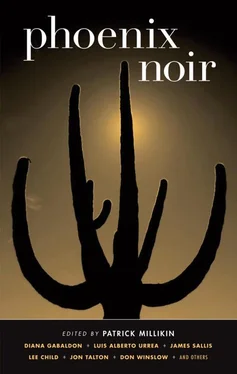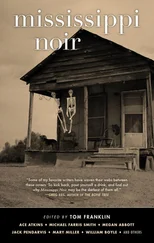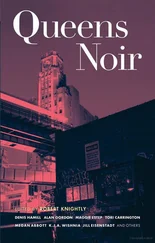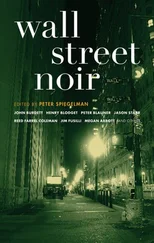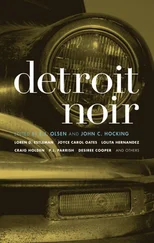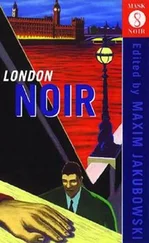Megan Abbott - Phoenix Noir
Здесь есть возможность читать онлайн «Megan Abbott - Phoenix Noir» весь текст электронной книги совершенно бесплатно (целиком полную версию без сокращений). В некоторых случаях можно слушать аудио, скачать через торрент в формате fb2 и присутствует краткое содержание. Город: New York, Год выпуска: 2009, ISBN: 2009, Издательство: Akashic Books, Жанр: Детектив, на английском языке. Описание произведения, (предисловие) а так же отзывы посетителей доступны на портале библиотеки ЛибКат.
- Название:Phoenix Noir
- Автор:
- Издательство:Akashic Books
- Жанр:
- Год:2009
- Город:New York
- ISBN:978-1-933354-85-9
- Рейтинг книги:5 / 5. Голосов: 1
-
Избранное:Добавить в избранное
- Отзывы:
-
Ваша оценка:
- 100
- 1
- 2
- 3
- 4
- 5
Phoenix Noir: краткое содержание, описание и аннотация
Предлагаем к чтению аннотацию, описание, краткое содержание или предисловие (зависит от того, что написал сам автор книги «Phoenix Noir»). Если вы не нашли необходимую информацию о книге — напишите в комментариях, мы постараемся отыскать её.
Phoenix Noir — читать онлайн бесплатно полную книгу (весь текст) целиком
Ниже представлен текст книги, разбитый по страницам. Система сохранения места последней прочитанной страницы, позволяет с удобством читать онлайн бесплатно книгу «Phoenix Noir», без необходимости каждый раз заново искать на чём Вы остановились. Поставьте закладку, и сможете в любой момент перейти на страницу, на которой закончили чтение.
Интервал:
Закладка:
Public transportation
by Lee Child
Chandler
He said he wouldn’t talk to me. I asked him why. He said because he was a cop and I was a journalist. I said he sounded like a guy with something to hide. He said no, he had nothing to hide.
“So talk to me,” I said, and I knew he would.
He scuffed around for a minute more, hands on the top of the bar, drumming his fingers, moving a little on his stool. I knew him fairly well. He was edging out of the summer of his career and entering the autumn. His best years were behind him. He was in the valley, facing a long ten years before his pension. He liked winning, but losing didn’t worry him too much. He was a realistic man. But he liked to be sure. What he hated was not really knowing whether he had won or lost.
“From the top,” I said.
He shrugged and took a sip of his beer and sighed and blew fumes toward the mirror facing us. Then he started with the 911 call. The house, out beyond Chandler, south and east of the city. A long low ranch, prosperous, walled in, the unlit pool, the darkness. The parents, arriving home from a party. The silence. The busted window, the empty bed. The trail of blood through the hallway. The daughter’s body, all ripped up. Fourteen years old, damaged in a way he still wasn’t prepared to discuss.
I said, “There were details that you withheld.”
He asked, “How do you know?”
“You guys always do that. To evaluate the confessions.”
He nodded.
I asked, “How many confessions did you get?”
“A hundred and eight.”
“All phony?”
“Of course.”
“What information did you withhold?”
“I’m not going to tell you.”
“Why not? You not sure you got the right guy?”
He didn’t answer.
“Keep going,” I said.
So he did. The scene was clearly fresh. The parents had gotten back maybe moments after the perpetrator had exited. Police response had been fast. The blood on the hallway carpet was still liquid. Dark red, not black, against the kid’s pale skin. The kid’s pale skin was a problem from the start. They all knew it. They were in a position to act fast and heavy, so they were going to, and they knew it would be claimed later that the speed was all about the kid being white, not black or brown. It wasn’t. It was a question of luck and timing. They got a fresh scene, and they got a couple of breaks. I nodded, like I accepted his view. Which I did. I was a journalist, and I liked mischief as much as the next guy, but sometimes things were straightforward.
“Go on,” I said.
There were photographs of the kid all over the house. She was an only child. She was luminous and beautiful. She was stupefying, the way fourteen-year-old white Arizona girls often are.
“Go on,” I said.
The first break had been the weather. There had been torrential rain two days previously, and then the heat had come back with a vengeance. The rain had skimmed the street with sand and mud and the heat had baked it to a film of dust, and the dust showed no tire tracks other than those from the parents’ vehicle and the cop cars and the ambulance. Therefore the perpetrator had arrived on foot. And left on foot. There were clear marks in the dust. Sneakers, maybe size ten, fairly generic soles. The prints were photographed and e-mailed and everyone was confident that in the fullness of time some database somewhere would match a brand and a style. But what was more important was that they had a suspect recently departed from a live scene on foot, in a landscape where no one walked. So APBs and be-on-the-lookouts were broadcast for a two-mile radius. It was midnight and more than a hundred degrees and pedestrians were going to be rare. It was simply too hot for walking. Certainly too hot for running. Any kind of sustained physical activity would be close to a suicide attempt. Greater Phoenix was that kind of place, especially in the summer.
Ten minutes passed and no fugitives were found.
Then they got their second break. The parents were reasonably lucid. In between all the bawling and screaming they noticed their daughter’s cell phone was missing. It had been her pride and joy. An iPhone, with an AT&T contract that gave her unlimited minutes, which she exploited to the max. Back then iPhones were new and cool. The cops figured the perp had stolen it. They figured the kind of guy who had no car in Arizona would have been entranced by a small shiny object like an iPhone. Or else if he was some kind of big-time deviant, maybe he collected souvenirs. Maybe the cache of photographs of the kid’s friends was exciting. Or the text messages stored in the memory.
“Go on,” I said.
The third break was all about middle-class parents and fourteen-year-old daughters. The parents had signed up for a service whereby they could track the GPS chip in the iPhone on their home computer. Not cheap, but they were the kind of people who wanted to know their kid was telling the truth when she said she was sleeping over at a girlfriend’s house or riding with a buddy to the library. The cops got the password and logged on right there and then and saw the phone moving slowly north, toward Tempe. Too fast for walking. Too fast for running. Too slow to be in a car.
“Bike?” one of them said.
“Too hot,” another answered. “Plus no tire tracks in the driveway.”
The guy telling the story next to me on his stool had been the one who had understood.
“Bus,” he said. “The perp is on the bus.”
Greater Phoenix had a lot of buses. They were for workers paid too little to own cars. They shuttled folks around, especially early in the morning and late at night. The giant city would have ground to a halt without them. Meals would have gone unserved, pools uncleaned, beds unmade, trash not collected. Immediately all the cops as one imagined a rough profile. A dark-skinned man, probably small, probably crazy, rocking on a seat as a bus headed north. Fiddling with the iPhone, checking the music library, looking at the pictures. Maybe with the knife still in his pocket, although surely that was too much to ask.
One cop stayed at the house and watched the screen and called the game like a sports announcer. All the APBs and the BOLOs were canceled and every car screamed after the bus. It took ten minutes to find it. Ten seconds to stop it. It was corraled in a ring of cars. Lights were flashing and popping and cops were crouching behind hoods and doors and trunks and guns were pointing, Glocks and shotguns, dozens of them.
The bus had a driver and three passengers aboard.
The driver was a woman. All three passengers were women. All three were elderly. One of them was white. The driver was a skinny Latina of around thirty.
“Go on,” I said.
The guy beside me sipped his beer again and sighed. He had arrived at the point where the investigation was botched. They had spent close to twenty minutes questioning the four women, searching them, making them move up and down the street while the cop back at the house watched for GPS action on the screen. But the cursor didn’t move. The phone was still on the bus. But the bus was empty. They searched under the seats. Nothing. They searched the seats themselves.
They found the phone.
The last-but-one seat at the back on the right had been slit with a knife. The phone had been forced edgewise into the foam rubber cushion. It was hidden there and bleeping away silently. A wild goose chase. A decoy.
The slit in the seat was rimed with faint traces of blood. The same knife.
The driver and all three passengers recalled a white man getting on the bus south of Chandler. He had seated himself in back and gotten out again at the next stop. He was described as neatly dressed and close to middle age. He was remembered for being from the wrong demographic. Not a typical bus rider.
Читать дальшеИнтервал:
Закладка:
Похожие книги на «Phoenix Noir»
Представляем Вашему вниманию похожие книги на «Phoenix Noir» списком для выбора. Мы отобрали схожую по названию и смыслу литературу в надежде предоставить читателям больше вариантов отыскать новые, интересные, ещё непрочитанные произведения.
Обсуждение, отзывы о книге «Phoenix Noir» и просто собственные мнения читателей. Оставьте ваши комментарии, напишите, что Вы думаете о произведении, его смысле или главных героях. Укажите что конкретно понравилось, а что нет, и почему Вы так считаете.
